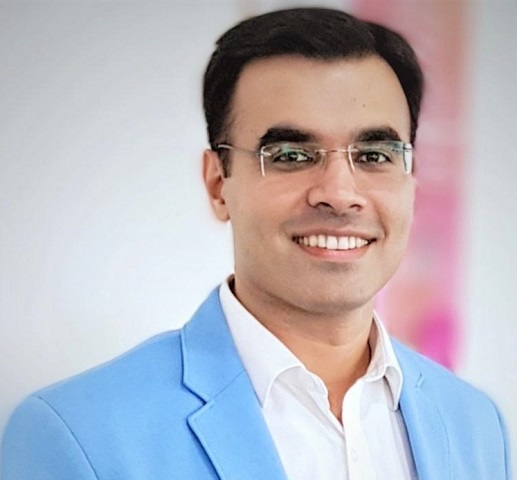Dr Karan THAKKAR responds to ThinkWellness360 questionnaire:
Why and how did you think of becoming a doctor?
I found medicine fascinating — ever since my childhood, or formative years. It held a vision, a canvas like no other — to learn something engagingly riveting, also something unique, and being able to help people in their darkest hour using that knowledge. They were the primary motivators — they propelled me to be a doctor.
What made you think of, study and specialise in the system of medicine you now practice?
I wanted to take up internal medicine, at first, but the fascination, yet again, of getting into something novel, like clinical research, and the ability to have a much greater impact on healthcare made me choose pharmacology. Since then, I have been fortunate to have had the right opportunities to contributing my humble bit towards the development of new medicines which address certain unmet medical needs of people.
What has been your personal and professional experience as a doctor?
Overall, the journey has been fulfilling and enriching. I feel extremely blessed to be a doctor and able to make a positive difference in healthcare.
What unique and special skills you think you have that has made the big difference for your patients?
It is important to keep asking ‘why,’ to understand a problem, or situation, comprehensively, to connect the dots, to plan and act. A patient-centric zeal, also motivation, matters the most. It is just as important to keep learning and be up-to-date with the latest developments in medical science.
What is your best definition of optimal wellness and why?
Optimal wellness may be defined as a balance between physical, mental, social, and environmental health. This also translates to a respect for oneself, others, and the environment. Proper nutrition, appropriate, ‘bespoke’ physical fitness, and mindfulness, are just as sine qua non for wellness.
Your best case?
When we managed to correctly diagnose and treat a patient who had lost his job due to incessant ‘head spinning.’ This patient had a huge file filled with consultation papers from various specialists, lab tests, MRI scans, prescriptions, and just about everything, but the correct diagnosis. We took about an hour to go through his case, examine him and arrive at a diagnosis, and offer treatment, which helped to ‘course correct’ his long-standing illness. This was akin to echoing an age-old aphorism, in real-time, “Treat the patient, not just the disease.” Yet another case was when I diagnosed Wilson’s disease over a phone call from a patient’s relative — they were hunting for a solution for an undiagnosed mysterious illness that had debilitated their middle-aged son for months.
Your ‘not-so-good’ case?
While working as a trainee anaesthesiologist, a part our job was to manage critically ill-patients in the ICU. I remember a patient who was admitted with multi-organ failure. We managed to revive her, but she sadly passed away later that day.
What appeals to you the most?
Trustworthiness and a willingness to have an open mind and learn.
What annoys you the most?
Superficial people; lack of common sense.
Your favourite book?
Harrison’s Principles of Internal Medicine
Your favourite song?
Country Roads — the cover version — of the classy original John Denver number — by Brandie Carlile
Your favourite movie?
All the Rocky movies
Your other interests, or hobbies?
Cooking, gardening, brewing coffee and mead; working out.
Your goal in life?
It’s my fervent endeavour to lead exciting, ground-breaking strategic initiatives — to improving healthcare outcomes and playing an important role in the development of patient-centric medical breakthroughs.

